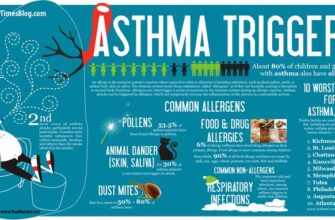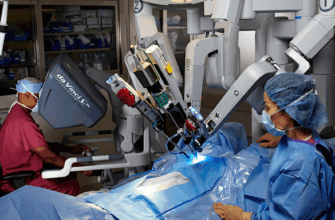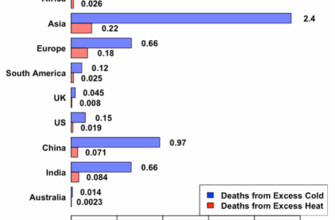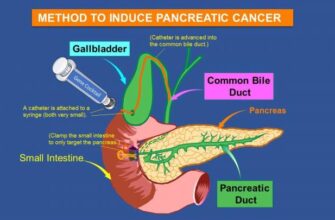The allure of summer beckons, promising sun-drenched beaches, exotic landscapes, and the relaxed rhythm of vacation. Families worldwide are finalizing their itineraries, eagerly anticipating a well-deserved escape. Yet, as luggage is packed and flights confirmed, an unwelcome microscopic companion, the rotavirus, often prepares for its own vacation, transforming idyllic getaways into an unexpected medical quest. Recent reports indicate a concerning rise in acute intestinal infections across popular resorts, from bustling coastal regions to serene cruise ship decks. This situation prompts a vital discussion on safeguarding your health.
To shed light on this pervasive issue and arm travelers with essential knowledge, we turn to Professor Andrey Prodeus, a distinguished Doctor of Medical Sciences and Chief Pediatric Allergist-Immunologist for the Moscow Region Ministry of Health. His insights offer a comprehensive roadmap to navigate the viral challenges of the 2025 travel season.
- The “All-Inclusive” Reality: Why Summer Is Rotavirus Season
- The Dangerous Misconception: More Than Just “Bad Food”
- Adults Are Not Exempt: Understanding the Broader Impact
- Strategic Response: When the Virus Strikes
- The Prepared Traveler`s Arsenal: Your Essential First-Aid Kit
- The Ultimate Defense: Vaccination
- A Call for Vigilance, Not Vacation Veto
The “All-Inclusive” Reality: Why Summer Is Rotavirus Season
The convergence of warm weather and high population density creates a near-perfect environment for rotavirus to flourish. It’s a deceptively simple equation: heat encourages outdoor activities and communal gatherings, while the heightened sense of holiday relaxation often leads to a subtle lapse in fundamental hygiene practices. Children, with their innate curiosity and frequent hand-to-mouth contact, are particularly vulnerable, but adults are far from immune.
Rotavirus, as Professor Prodeus explains, is a surprisingly resilient pathogen. It endures for extended periods outside the human body, transforming seemingly innocuous surfaces into potential transmission points. A shared toy, a poorly washed piece of fruit, a handrail on a staircase, or even communal dining utensils can become vectors. Furthermore, in confined spaces like resort kids` clubs, hotel lobbies, or cruise ship cabins, airborne transmission can also contribute to its rapid spread. It’s a classic case of a highly adaptable virus exploiting human behavior during peak travel periods.
The Dangerous Misconception: More Than Just “Bad Food”
A common, and potentially perilous, misinterpretation of rotavirus symptoms is dismissing them as mere “food poisoning.” While both can cause gastrointestinal distress, their underlying mechanisms and treatment approaches differ significantly. “The symptoms of rotavirus infection develop rapidly,” warns Professor Prodeus. “They typically begin with vomiting, followed quickly by a rising fever and watery stools.”
For young children, especially those under five, rapid dehydration can become life-threatening within a matter of hours. A mere 10% loss of body weight can have fatal consequences. The danger arises when parents, convinced it`s just “something the child ate,” delay seeking medical attention, fail to adequately replenish lost fluids, or initiate incorrect treatment. Rotavirus actively impairs the absorption of fluids and enzymes in the intestines, causing genuine mucosal inflammation, not just transient upset. It’s a viral invasion, not merely a culinary misstep, and demands a specific, informed response.
Adults Are Not Exempt: Understanding the Broader Impact
While adults generally experience a milder course of rotavirus infection compared to children, this should not breed complacency. Professor Prodeus emphasizes that complications are still possible, particularly for individuals with pre-existing conditions or compromised immune systems. Moreover, a seemingly mild case in an adult can still pose a significant public health risk: “An adult can remain contagious for up to 3–5 weeks after symptoms have subsided,” he notes, highlighting the potential for continued community spread even after recovery.
Strategic Response: When the Virus Strikes
Should the unwelcome symptoms of rotavirus manifest during your travels, a clear and decisive action plan is paramount:
- Restore Hydration: The Cornerstone. “The first priority is to restore the body`s water-salt balance,” states Professor Prodeus. This involves the diligent use of oral rehydration solutions, consumed in small, frequent sips. For children, close monitoring of urination is crucial, as it indicates effective rehydration. This step is often the most critical in preventing severe complications, especially dehydration.
- Early Antiviral Intervention. Beyond symptomatic relief, certain antiviral medications can play a vital role. These agents work by interfering with the virus`s ability to penetrate human cells, limiting its replication and reducing the severity and duration of symptoms. It`s important to consult with a medical professional for appropriate guidance on antiviral therapy.
Crucial Caution: It cannot be stressed enough that antibiotics are ineffective against viral infections like rotavirus. Administering antibiotics in such cases is not only futile but can also lead to adverse effects and contribute to antibiotic resistance. Always seek professional medical advice before initiating any treatment.
The Prepared Traveler`s Arsenal: Your Essential First-Aid Kit
More than just sunscreen and swimsuits, a thoughtfully assembled first-aid kit can be your most valuable travel companion. Professor Prodeus recommends including the following:
- Rehydration Salts: Absolutely essential for combating fluid loss.
- Antipyretics: For managing fever (e.g., paracetamol or ibuprofen).
- Sorbents: Such as activated charcoal or other absorbent agents, to help bind toxins and reduce diarrhea.
- Anti-Allergy Medications: For unexpected allergic reactions.
- Basic Wound Care: Bandages, adhesive plasters, and a reliable antiseptic.
- A Proven Antiviral Agent: As discussed, a broad-spectrum antiviral can be a game-changer.
- Electronic Thermometer: For accurate temperature monitoring.
- Disposable Tableware and Wet Wipes: Small items, often overlooked, but critical for maintaining hygiene, especially in shared accommodations.
Think of it as your medical “travel insurance,” offering peace of mind and immediate resources should the unforeseen occur.
The Ultimate Defense: Vaccination
Perhaps the most robust shield against rotavirus is vaccination. While it may not yet be universally integrated into national immunization schedules, the vaccine is available privately in many regions and is slated for broader inclusion in the near future. “I strongly recommend vaccination to parents of young children,” urges Professor Prodeus. “Vaccination remains the most reliable form of prevention, particularly given the regularity of outbreaks and the seasonal increase in infection rates.” It`s an investment in health that can transform a potentially harrowing experience into a genuinely relaxing holiday.
A Call for Vigilance, Not Vacation Veto
Summer is a time for making cherished memories, not for battling an insidious virus. By adhering to fundamental hygiene practices, remaining vigilant for initial symptoms, and preparing a well-stocked first-aid kit, you can significantly safeguard yourself and your loved ones. As Professor Prodeus aptly concludes, “Your holiday should be a time of relaxation and enjoyment, not a medical quest.” With prudent preparation and informed action, you can indeed ensure that your all-inclusive vacation truly includes everything—except, thankfully, the virus.









